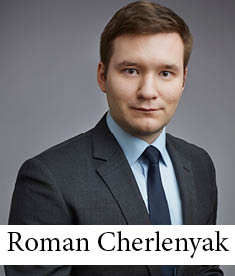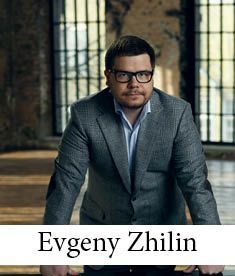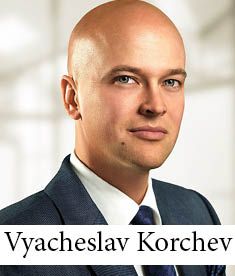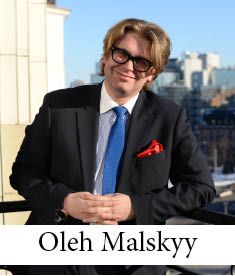Natalia Belova is the recently-appointed Head of Legal (see page 16) at Food City in Moscow – the largest European wholesale food distribution center. Prior to joining Food City Belova worked for more than 10 years in international FMCG companies such as Heinz, British American Tobacco, and EFES.
CEELM:
To start, please tell us a bit about your career leading up to your current role.
N.B.: You know I have a joke I use when talking about my experience: “I have a very strong and precise career path: first food (Heinz), then tobacco (BAT), then alcohol (EFES) – now all that’s left is hard medicine.”
In all seriousness, over the last 10 years I have worked mostly in heavily regulated areas. Recently Russia became an open market for tobacco, alcohol, etc. So I had an excellent opportunity to take part in major business process changes required of globally-known companies by ever-changing Russian and CU (Custom Union) legislation. For example, with EFES I led a project of beer licensing. In that case, it was not 100% clear to us whether beer was going to be licensed as strong alcohol, so we were forced to act on some assumptions. In fact, beer is still not licensed as strong alcohol – but I think that EFES is ready for that now [smiles].
CEELM:
In your previous role with EFES Russia, you were the project leader of the global integration process of merging the two beer companies EFES and SABMiller. What type of work did this exercise entail specifically and what were the most difficult elements?
N.B.: Integration begins the second after all the papers of the merger are signed. In our case the process was very specific and complicated because it was an alliance of companies with different corporate cultures and ethics, methods of production, logistics, and sales. Even the corporate schemes of the legal entities and branches was different. It meant that we were required to analyze all the processes of EFES and SABMiller – from production until the sale of goods to retailers – and to choose the best solution for the new company. Sometime, in fact, the best solution was a third option not used before by either SABMiller or EFES.
We created a integration team with participants from all departments. I believe that the main role of an integration process is to keep the business viable. That is why one of my main tasks was to respond to all the questions from the departments and to find a way to help production, logistics, and sales personnel from both companies work without any pause or objections from state organs or counterparts.
Needless to say, we made sure our merger and integration aligned with beer legislation requirements, and we checked every step not only against our internal plan, but also with all the amendments that occurred every half year.
After the merger we faced tricky moments with the sale of goods that had been produced before the merger to retailers. This was caused by the fact that current beer regulation has only one format of documents for any run of goods and imposes strict liability on any producer or retailer in the case of miss-steps. I prepared many different forms of documents (by law the production, warehousing, transportation, and supply of beer all require a list of documents for every party) and had big conversations with state organs and our key accounts to exclude the risks of penalties or the return of beer from our clients. And I should say: no returns and no penalties were incurred!
At the same time, any merger includes optimization processes – and in our case big ones were involved. We closed two breweries: one in Moscow and one in Rostov-on-Don. I led on all matters concerning land, labor, real estate, and dangerous production equipment.
CEELM:
What were the main challenges in bringing together the two legal teams of the two companies?
N.B.: The main challenge we faced was the fact that one company previously had a decentralized form of legal support – lawyers in the regional breweries also supported the sales department – while in the other company this function was centralized. The new company decided to keep the personnel of EFES and SABMiller and then in the process of work to define which specialists were preferable for each t area.
This task was fully on the shoulders of the Legal Director of the company. And, over time, it became clear that this was the best solution. Some people found themselves in new departments. Some decided to continue their careers outside. But finally the department became so balanced that we took second place in the “Best Legal Departments of Russia” awards in 2013.
CEELM:
What type of work do you outsource to external counsel? When you do externalize work, what are the main criteria you use in selecting the law firms you will be working with?
N.B.: You know, it is a common mistake to assume that companies use outsourcing in cases where they lack people, resources, competencies, or have short deadlines. External counsel cannot replace internal people or make final decisions. Instead, external counsel are necessary for support on specific occasions. When I choose to outsource I consider as mandatory: professionalism, management skills, ability to work with very specific cases, ability not to be only a consultant but also very a precise decision-maker, and the ability to become a part of the company team – be IN, not OUT.
I also use outsourcing to receive “second opinions” when the law is contradictory and making a mistake would be harmful to business. Sometimes external counsel have more practical or inside information about such cases.
CEELM:
Looking at the Russian market these days, in what ways, if any, are current events affecting your business and your work as an in-house counsel?
N.B.: When we talk about the current situation and crisis – which has affected almost all spheres of our life – I always say that I am a very lucky person because people will never stop eating [laughs]. And, for our company, all these changes have not had a massive impact. But on a more global scale – not specifically about our company – you can see a big change in demand in the Russian market caused by the downturn in our economy. All the businesses have changed their expectations and reduced their costs. Some businesses are almost dead – for instance, travel agencies.
As you know, Russia is also restricted from importing products from European countries. This has increased the percentage imported from other lands. And sometimes it helped countries to add new goods not imported before. For example there are now countries which produce seafood without any fresh water within their borders [smiles].
CEELM:
What upcoming legislation, if any, keeps you up at night, and how are you preparing for it?
N.B.: There were huge court reforms last year. The Supreme Arbitration Court was eliminated and the arbitration courts were combined with regular courts. This was very controversial in the legal community because the arbitration courts were more developed and had a more unified vision on economic cases. There is a lot of doubt as to whether all the experience generated in previous years will be used now. The court process also, now, includes one more stage. And so on. It means that we are in an unstable period in litigation. And now we prepare not only harder for every case, but we also try to take into account new the “corporate culture” of courts.
CEELM:
What do you mean by the “new corporate culture of courts”?
N.B.: One of the reasons for the merger of the Supreme Arbitration Court and the Supreme Court was the fact they had conflicting competences and sometimes different visions on the same issues. Although our legislation is not based on case law, we could refer to previous arbitration decisions and could expect that decisions on similar matters would be the same. Now with the new unified court system we are not sure that this informal rule will remain.
CEELM:
On the lighter side, what’s your favorite item in your office?
N.B.: For a long period of time it was a photo I took in Australia, Sidney. I was just sitting on the edge of the cliff in front of the ocean and swinging my legs.
This Article was originally published in Issue 2.2. of the CEE Legal Matters Magazine. If you would like to receive a hard copy of the magazine, you can subscribe here.

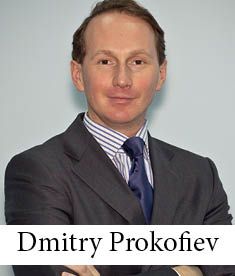
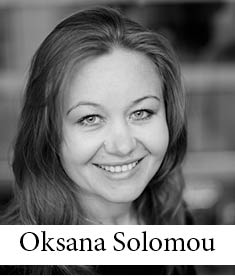 Promotions are slowing down significantly in international firms in Russia, according to Solomou, who estimates the number of promotions at around 20% of what it was in the past. She adds: “Of course, exceptional talent and performance still needs to be acknowledged, at least financially, but firms are finding it difficult to build an internal business case to HQ to make actual promotions.” The international firms are facing the same difficulty, she explains, in terms of hiring. Even in the case of in-demand practice areas such as litigation, it is hard to sell a hire internally, even in the later stages of the process, “with HQs tending to ask why the lawyers from under-performing practice areas cannot be transferred.” Indeed, with a number of international firms already engaged in considerable downsizings in recent months – and more expected soon – even maintaining the status quo is a challenge.
Promotions are slowing down significantly in international firms in Russia, according to Solomou, who estimates the number of promotions at around 20% of what it was in the past. She adds: “Of course, exceptional talent and performance still needs to be acknowledged, at least financially, but firms are finding it difficult to build an internal business case to HQ to make actual promotions.” The international firms are facing the same difficulty, she explains, in terms of hiring. Even in the case of in-demand practice areas such as litigation, it is hard to sell a hire internally, even in the later stages of the process, “with HQs tending to ask why the lawyers from under-performing practice areas cannot be transferred.” Indeed, with a number of international firms already engaged in considerable downsizings in recent months – and more expected soon – even maintaining the status quo is a challenge.